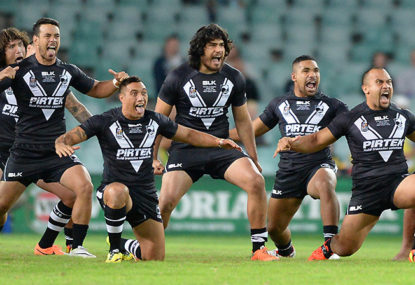NRL Round 9 judiciary: Tago set for ban after Gray hip drop, Host suspended, Bronco in strife over shoulder charge
Manly veteran Nathan Brown could be banned but is likely to cop a fine after he was one of four players charged by the…

Surely rugby league’s power brokers must realise by now that it is the international version of the game that will secure the code its future.
Forget the naysayers who mock rugby league for its supposedly limited market. Even supporters will cry out that there are only two Australian states and a few northern England towns.
And yet those two states are able to generate a $1 billion dollar deal over five years. The few northern England towns, despite decades of go nowhere management, still find the resources to provide a fully professional league for its players.
International rugby league need not be the master of the universe in order for it to be successful. But it does need enlightened direction and management in order to cement itself within a competitive world market.
If one doubts the nature of this world market, consider the simple fact that Glebe, still one of the most successful clubs of all time, no longer exists. Glebe, like a host of other suburban clubs, died because ultimately, they were unable to make themselves relevant as the game’s boundaries expanded.
Fast forward 100 years and consider that along with the New Zealand Warriors being a major element in the NRL’s commercial footprint within the region, Papua New Guinea now has a team in the Queensland state competition and there is talk of a Fijian team doing the same in New South Wales.
Like it or not, rugby league is international.
As the Super League in the UK gets its own house in order, it takes no stretch of the imagination to see that the Super League may very well do to Europe what the NRL is doing to the Pacific.
Currently, a French team, the Catalan Dragons competes and during last year’s World Cup, the fledgling Italian league made the comment that it was their long term goal to have a team competing in the Super League.
A pipe dream perhaps but the delicate, worldly lines of Super League’s inevitable future can be seen.
Back in Australia, the staging of the State of Origin is a money spinning NRL all-stars concept that still works. It won’t be going away soon. Last year’s World Cup and this year’s Four Nations, however, have shown there is the potential for more.
In order for this potential to be realised, in order for the international element of the NRL – and rugby league in general – to be satisfied, the game’s administration must look forward and embrace the world.